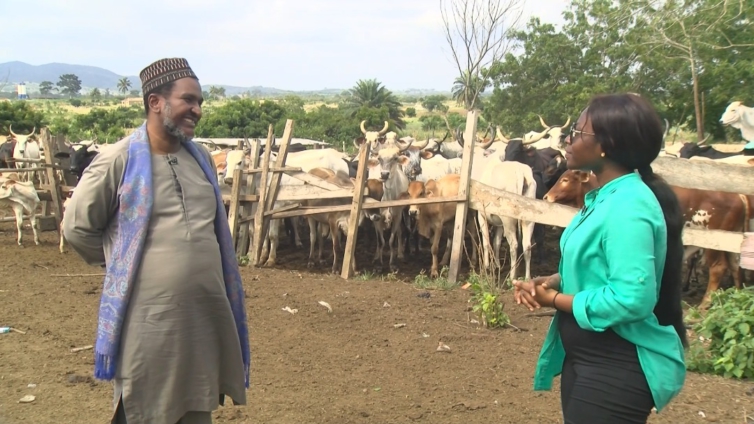Rearing for Food and Jobs is one of government’s flagship programmes that seeks to develop a competitive and more efficient livestock industry for economic growth.
The programme is a five-year campaign expected to run from 2019 to 2023. The initiative is designed to address bottle-necks along five key value chains in the livestock sub-sector. They include sheep, goats, and pigs. The rest are poultry and dairy cattle. The programme is also aimed at increasing domestic food production, while creating employment for the youth.
According to President of the Ghana National Association of Cattle Farmers, Imam Hanafi Sunde, government has not engaged them in any way on the project.
“Sometimes when the facts are pointed out, it is to draw the attention of people to do something better. For us the association, we have not felt the impact of the Rearing for Food and Jobs,” he lamented.
Meanwhile, Chairman of the Cattle Ranching Committee, Dr. Kwame Oppong Anane insists that government initiated the ranching system to back the Rearing for Food and Jobs programme to improve the livestock industry. He however adds that there are still some challenges that must be addressed.
“The meat consumption recommended is 30kg per annum per person. According to Food and Agriculture Organisation (FAO), Ghana is consuming 16kg and our own statistics show that the average Ghanaian consumes about 14kg. Although we consume about half of the recommended intake, 60 percent of what is consumed is imported. Ghana has potential to rear all types of livestock with reference to how big the poultry industry is. If we can improve in feed production, the livestock sector will greatly improve which will end importation and generate more income for our farmers,” he said.
With just a year to assess the programme, it is important for government to engage all stakeholders in the cattle rearing sector to ascertain the number of employment created, as well as its impact on the economy.
Latest Stories
-
Zoomlion Ghana responds to contractual engagement with Youth Employment Agency
27 minutes -
INTERPOL targets stolen vehicle trafficking in West African police operation
30 minutes -
Brazil extend Ancelotti deadline amid Madrid standoff – sources
38 minutes -
Next round of Iran-US nuclear talks postponed
49 minutes -
From ‘Otwebompitil” to the Supreme Court; congratulations, my lord Justice Kweku Tawiah Ackaah-Boafo
53 minutes -
Clooney gets Tony nomination for Broadway debut
58 minutes -
5th May demo not about NPP but judicial independence – Afenyo-Markin
1 hour -
NPP National Chairman hasn’t abandoned ‘Thank you’ tour – Justin Kodua
1 hour -
Your attempt to remove the Chief Justice is dangerous for our democracy – Organised Labour to Mahama
1 hour -
Former NPP members who left voluntarily will not be granted amnesty – Justin Kodua
1 hour -
Mahama urges workers to speak up against mismanagement in public institutions
2 hours -
We saved GH¢550m worth of properties from destruction in 2024 – GNFS reveals
2 hours -
‘Aluta Continua’: Mahama vows to pursue galamsey fight
2 hours -
Tread carefully on CJ’s ousting – Organised Labour advises Mahama
2 hours -
Nomination of seven judges to the Supreme Court is a Mahama third-term agenda – Afenyo-Markin
3 hours

